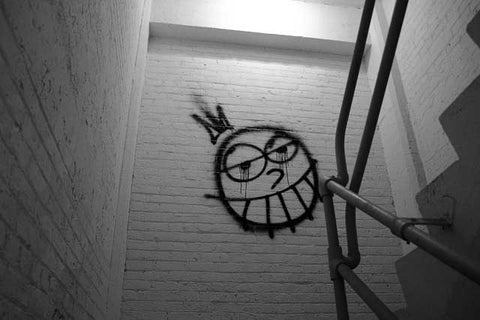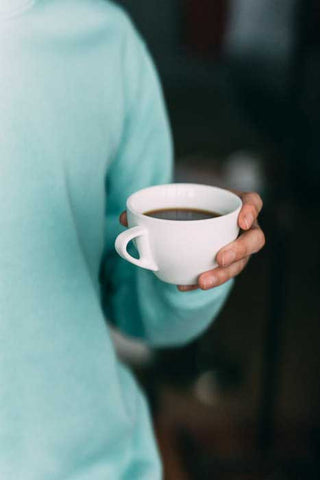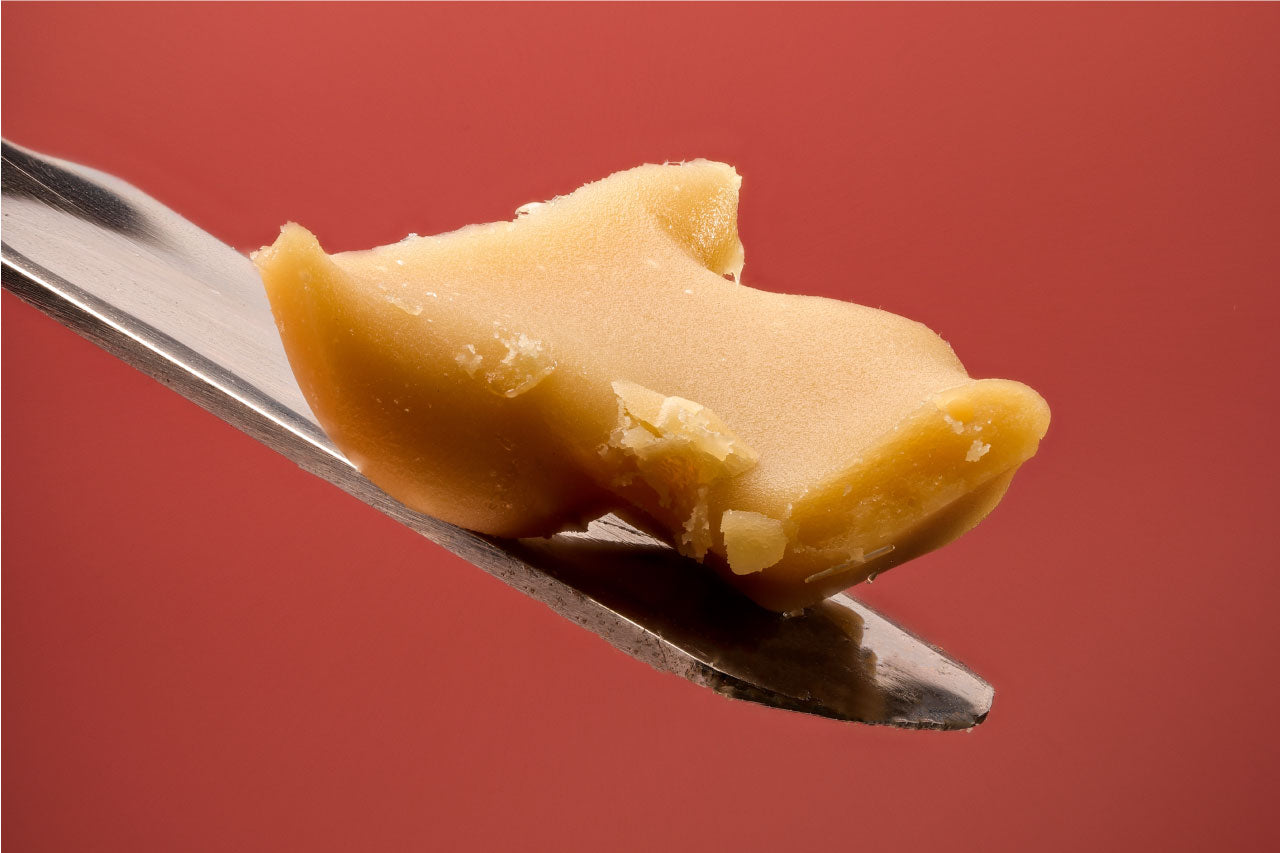Anxiety is one of the most common issues people are looking to resolve using CBD. Now, most CBD companies would go on to tell you how great CBD is for anxiety without really saying much about anxiety itself or how CBD might relieve anxiety symptoms. This is in part because making any medical claims about CBD’s potential to treat any ailment is forbidden by the FDA. In addition to this, most companies will tell you CBD will do anything you are looking for it to do just to get a sale.

Sauce Warehouse isn't most companies. To solve a problem, it must first be understood. In this article we will cover what it really means to ‘have anxiety’, common contributing factors that can be simple to correct, and when all else fails the best way to go about trying CBD.
So, What is Anxiety?
The general definition of anxiety taken from the Meriam-Webster dictionary is this,
apprehensive uneasiness or nervousness usually over an impending or anticipated ill : a state of being anxious(1)
The fact of the matter is all of us will experience anxiety at some point in our lives. Anxiety is often a normal response to our assessment of a specific situation, for example speaking in public.

These responses can be helpful when we sense and foresee real potential danger, but all too often our anxiety is completely based in fantasy, “what if I say the wrong words” or “what if they think I sound dumb”. Anxiety tends to fuel itself in this way. We get all wrapped up in hypotheticals until we are convinced they are realities, and this prompts the creation of even more hypotheticals. This complete detachment from reality is what allows anxiety to persist.

For those who wish to control their anxiety in situations where there is no realistic threat or reason to be anxious, there are many methods out there that will help with this. If this anxiety is something that only happens occasionally or in a one-off situation, simply facing the original fear and exposing oneself to the situation or event being anticipated will often dull or even eliminate the anxiety experienced when this situation or event is to be confronted again.

For others who find themselves experiencing anxiety so frequently that everyday life has become unmanageable, things might not be so simple. In the realm of psychology this type of anxiety falls under the category of anxiety disorders. Anxiety disorders are a class of disorders in which the primary symptom is excessive or unrealistic anxiety(2). Within this class of disorders are different classifications involving unique symptoms and causes.
|
Free Floating Anxiety |
Anxiety that is unrelated to any specific and known cause |
|
Phobia |
An irrational, persistent fear of an object, situation, or social activity |
|
Social Anxiety Disorder |
Fear of interacting with others or being in social situations that might lead to a negative evaluation |
|
Specific Phobia |
Fear of objects or specific situations or events |
|
Claustrophobia |
Fear of being in small, enclosed space |
|
Acrophobia |
Fear of heights |
|
Agoraphobia |
Fear of being in a place or situation from which escape is difficult or impossible |
|
Panic Disorder |
Disorder in which panic attacks occur more than once or repeatedly, and cause persistent worry or changes in behavior |
|
Generalized Anxiety Disorder |
Disorder in which person has feelings of dread and impending doom along with physical symptoms of stress, which lasts 6 months or more |
|
Obsessive Compulsive Disorder |
Disorder in which intruding, recurring thoughts or obsessions create anxiety that is relived by performing a repetitive, ritualistic behavior or mental act (compulsion) |
|
Acute Stress Disorder |
A disorder resulting from exposure to a major stressor, with symptoms of anxiety, dissociation, recurring nightmares, sleep disturbances, problems in concentration, and moments in which people seem to “relive” the event in dreams and flashbacks for as long as 1 month following the event |
|
Posttraumatic Stress Disorder |
A disorder resulting from exposure to a major stressor, with symptoms of anxiety, dissociation, nightmares, poor sleep, reliving the event, and concentration problems, lasting for more than 1 month; symptoms may appear immediately, or not occur until 6 months or later after the traumatic event |
(3)
Each of these unique types of anxiety will require their own methods of treatment, but hopefully this helps you identify the specific type of anxiety you have been dealing with. Once identified, you can talk to a qualified therapist or if this isn’t an option or is just something you aren’t interested in doing, you can also do your own research into how this type of anxiety is commonly treated and what has worked for others.

Now that we have a better understanding of what anxiety is and have identified many of the different forms it may take, lets think about the potential causes of anxiety. With some forms of anxiety, the cause is relatively obvious. But for the types of anxiety where we just aren’t sure what the cause is, there are some common contributing factors that should be considered before rushing to try and resolve the anxiety with medication, CBD, or anything else. The reason for this is to avoid compounding an already complex situation. It’s better to remove as many outside influences as possible rather than add new influences as this can help us better identify the root cause of the anxiety.

Common Causes of Anxiety:
Drugs
Drugs can really interfere with the natural functioning of our body and mind. Even drugs you may believe to be completely benign and harmless could be the underlying cause of anxiety. If you are taking any prescription drugs, try searching for possible side effects and see if anxiety is listed. If you are taking any over the counter drugs do the same for these and if they are not necessary, discontinue use to see if anxiety symptoms lessen.

And of course, recreational drugs must be cut out entirely. All too often the cause of the anxiety is the reason we start using recreational drugs and this can be a completely unconscious decision. If you are truly invested in resolving your anxiety issue, all recreational drug use will have to be put on hold until eliminated as a potential cause.
Diet

Diet is just as underestimated as exercise in terms of mental health. If you think about waking up in the morning with an empty stomach and how disorienting that can be, it is clear that our minds do not function at 100% without food. Not only do we need to be sure that we are eating enough, but eating enough of the right, healthy foods. Things like caffeine, sugary drinks, and gluten can increase nervousness and anxiety.

Food that is high in omega 3 can reduce anxiety. Any food items that cause a noticeable ‘high’ whether it be a sugar high or caffeine high must be cut out completely when trying to identify the cause of anxiety. These foods can have a major influence on our minds without us ever realizing it.
Lack of Exercise

Exercise is crucial. Exercise clears the mind of the excess energy that fuels anxiety. It also provides a focused space where we can reflect and gain insight into our own thought patterns and our lives in general.
Toxic Environment/Unhealthy Relationships
This is probably the most overlooked cause of anxiety. It is rare to come across individuals who grew up, or even currently live, in perfect environments. Most of us have issues at home but for some these might be more taxing than others. In some cases, these environments are made toxic by relationships that are unhealthy but are maintained because of proximity. We often overlook this as a cause of anxiety because it is simply our environment, where we live, who we live with etc. That isn’t us, that isn’t our anxiety, that isn’t related to what’s in our head…is it? It absolutely is.

We are quite literally products of our environment. We don’t go to quiet and empty places to feel adrenaline and excitement, and we don’t go to amusement parks for peace and alone time. If you are constantly facing unpleasant social interactions in your daily life, especially at home, this can lead to a sort of free-floating anxiety. When people we love and care for are causing our anxiety it is especially hard to identify because we have an emotional attachment to the cause. This can be one of the most difficult causes of anxiety to resolve as it is not always possible to remove ourselves from these environments.

Illogical, Irrational Thought Processes
Illogical and irrational thought processes are ways of thinking which inevitably lead to an anxiety response. There are many different types of these thought processes that are recognized by the field of psychology (see table below). But these can also involve situations in our lives where we are internally divided on a particular issue, and this can leave us in a state where we are rarely living ‘in the moment’ and almost stuck in a hypothetical thought loop. Sometimes the best thing to do in these situations is spend more time with ourselves, reflecting and deciding the direction we’d like to move in. And at times, we just have to wait it out.

Regarding the following thought processes, we must learn to think about our own thinking and become consciously aware of our tendencies toward thinking illogically/irrationally. Once we have become more aware of this, it becomes easier to replace these dysfunctional thought patterns with healthier ones.
|
All-Or-Nothing Thinking |
The tendency to believe that one’s performance must be perfect or the result will be a total failure |
|
Overgeneralization |
Distortion of thinking in which a person draws sweeping conclusions based on only one incident or event and applies those conclusions to events that are unrelated to the original; the tendency to interpret a single negative event as a neverending pattern of defeat and failure |
|
Minimization |
Distortions of thinking in which a person blows a negative event out of proportion to its importance (magnification) while ignoring relevant positive events (minimization) |
|
Magnification |
The tendency to interpret situations as far more dangerous, harmful, or important than they actually are |
(4)
Stress/Overload/Multitasking

As previously mentioned, anxiety tends to feed off hypotheticals and our mind being disconnected from reality. When we are multitasking or have a lot on our plates, we tend to try and compensate for our ability to only do so much at once by thinking about everything else we have to do. This can contribute to feelings of anxiety.
If you have considered all these contributing factors in relation to your experience with anxiety, and you find that none of them really apply or are unable to be applied to your unique situation, perhaps you might be interested in trying CBD to ease your symptoms.

Using CBD to Relieve Anxiety
If you are interested in trying CBD for anxiety, specifically CBD concentrates, then you have certainly come to the right place! Sauce Warehouse features the most diverse collection of CBD concentrates on the web, but we also have a growing selection of CBD hemp flower for those who prefer utilizing raw low THC cannabis flower. CBD is thought to relieve anxiety by altering levels of serotonin in the brain and it also has been found to repress the 'fight or flight' response.
There are a few things to consider before diving into trying CBD for the first time. Both CBD concentrates and CBD hemp flower, or as we like to call it - low THC cannabis, can be added to food or drink if smoking/vaping is not the preferred consumption method.

Dabbing/Vaping vs. Digesting
CBD concentrates in comparison to low THC cannabis flower are healthier to consume because there is no combustion involved. Smoking anything is potentially damaging to the lungs. Using CBD concentrates in a dab rig or vaping them in a concentrate pen will be the quickest and most efficient method of consumption when compared to smoking flower or ingesting concentrates/flower in edible form. When trying CBD concentrates for the first time, dabbing/vaping will also allow you to make an immediate appraisal of what the effects will be like for you which can be helpful in choosing between full and broad-spectrum products.

When making edibles with CBD concentrates or flower, you may require larger doses. In some cases, people report little to no effect when consuming CBD edibles. In either case if you decide to use edibles, it is wise to purchase your own raw materials and make them yourself as most CBD edibles on the market do not contain the amount of CBD displayed on the label. This is also cheaper! Check our instructions for making edibles with CBD concentrates here, and for flower here, if this interests you.

Full Spectrum vs. Broad Spectrum
It is important to experiment with both full spectrum CBD concentrates, and broad-spectrum CBD concentrates to find which is best for you. Full spectrum concentrates contain the full spectrum of cannabinoids, including THC. These are great for experiencing the entourage effect which is produced when using the full spectrum of cannabinoids together. Broad-spectrum concentrates contain primarily CBD and few other minor cannabinoids.

Some find that the small amount of THC in full spectrum concentrates is enough to make their anxiety worse, while others report that THC has a beneficial effect on their anxiety symptoms. If the THC does agitate your anxiety, there are plenty of quality broad-spectrum options to choose from. You can learn more about the different types of concentrates in our blog articles or drop us a line and we’ll be glad to help find what’s right for you.

Conscious Use
With many types of anxiety having roots in unconscious triggers, it is important to use CBD as consciously as possible. Most CBD companies will encourage overuse for obvious reasons, but at Sauce Warehouse we believe balance is key when it comes to everything we put into our bodies. CBD should be used consciously. Managing anxiety symptoms with CBD when they are at their worst or when other solutions like exercise are not an option would be an example of conscious use.

Using CBD constantly throughout the day and relying solely on CBD for your mental health would be unconscious and unhealthy use. This type of use would also contribute nothing to the goal of living an anxiety free life. In almost every case the resolution to anxiety issues comes from within, seeking resolution from any substance is an empty pursuit.

If you are interested in trying CBD concentrates or low THC cannabis flower for your anxiety and have any questions, don’t hesitate to contact us. We are always happy to help!
Sources:
1: https://www.merriam-webster.com/dictionary/anxiety
2: Ciccarelli, Saundra. White, J. Psychology Fifth Edition. Essex, England. Pearson Education. 2017. P 593
3: Ciccarelli, Saundra. White, J. Psychology Fifth Edition. Essex, England. Pearson Education. 2017. P 593-596
4: Ciccarelli, Saundra. White, J. Psychology Fifth Edition. Essex, England. Pearson Education. 2017. P 597-598



